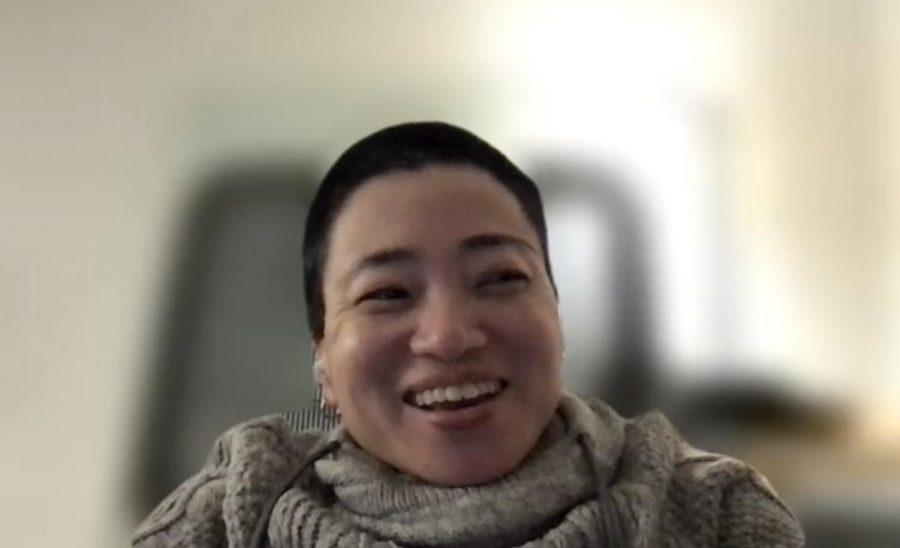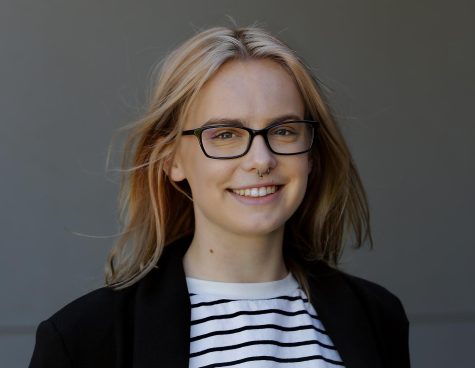Activist discusses difference between disability justice, rights
Disability Justice Initiative director grew up with parents pushing for proper resources, led her to where she is today
Mia Ives-Rublee, director of Disability Justice Initiative at the Center for American Progress, said disability justice allows for every community to push for change.
November 19, 2021
The WSU Access Center hosted a Disability, Justice and Inclusion event on Wednesday to discuss disability justice.
Mia Ives-Rublee, director of Disability Justice Initiative at the Center for American Progress, said she is a transracial adoptee with disabilities and described the background of disability justice.
A lot of people do not know what disability justice really means, Ives-Rublee said. People will use the term interchangeably and call it disability rights as well.
“Disability justice is an actual, real framework, viewing and relating to the world,” she said. “Disability justice understands that people don’t live single-issue lives, and that ableism and disability relate to other forms of oppression and identity.”
Ives-Rublee said disability justice fights for the individuals who felt excluded from the first wave of the disability rights movement, which was led by straight, white men.
The people who make up disability justice collectives helped push disability justice into the community and pushed for a second wave of activists and advocates, she said.
“Disability justice collectives sought opportunities outside of the general societal structures to care for one another and fight against structural oppression, not relying solely on legislation and policy change,” Ives-Rublee said. “That’s a big change.”
Unlike disability rights, disability justice does not rely on legislation and policy change, but it provides a community between people and with people outside of the disability community, she said.
Disability justice allows for every community to push for change, she said.
Along with pushing for change, disability justice asks people to reconsider the societal structure they have gotten used to, Ives-Rublee said.
“As we have spent time watching people die across the country … due to the pandemic within one of the richest and most productive countries on the planet, one has to wonder,” she said.
Ives-Rublee said she is a disability justice activist, and it was a big journey for her to get where she is now. Her journey started in the disability rights movement.
She said was adopted into a white family and was raised by two parents who fought as hard as they could to make sure she had access to the opportunities and resources she needed to thrive.
Having that support helped her get into college and eventually get a master’s degree in social work, she said.
Ives-Rublee said worked as a vocational rehabilitation counselor as well, she said. She fought for community members to gain access to the support they need.
“But I began to grow very weary at the program … watching counselors go through the motions of trying to patch holes in the system,” she said. “I watched clients come in over and over again, dejected and abused, many who were hopeless. It was then that I began to really question the system.”
She started to interact with other communities and social movements and learned about how systems continued to sabotage marginalized individuals trying to receive help, she said.
She began to understand people do not live single-issue lives, she said. This helped lead her to work with the Disability Justice Initiative.
“That framework helped me as I began working on organizing the women’s march and [it] continues to affect the work that I do today,” Ives-Rublee said.










